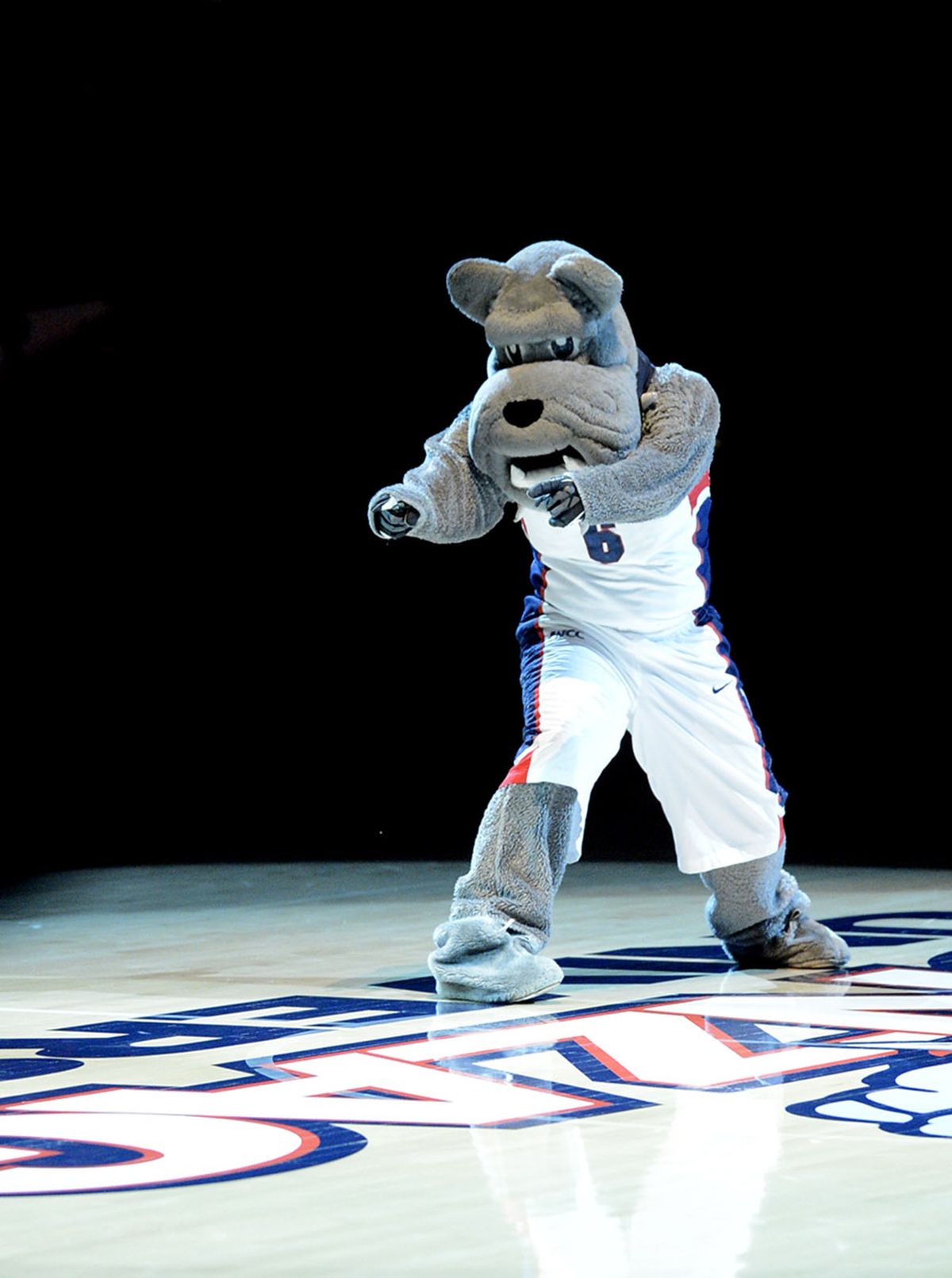Spokane daiquiri bar owner in a real dogfight

The owner of a Spokane bar who sparked controversy with the drink name “Date Grape Kool-Aid” is fighting back against a trademark infringement suit brought by Gonzaga University even as his business faces eviction.
Jamie Pendleton, owner of the Spokane Downtown Daiquiri Factory, last week filed a response to a federal civil lawsuit saying the trademarks he allegedly swiped from the private university had not been registered since the early 2000s.
But a legal expert on trademark law says those registrations may not matter if the school can prove the public already identifies the authentic logos, images and brand names with Gonzaga, regardless of legal filings.
“Common law trademarks can be just as distinctive, valid, and famous as registered trademarks can be,” wrote Alexandra Roberts, a law professor at the University of New Hampshire and executive director of the Franklin Pierce Center for Intellectual Property at the school, after reviewing the case.
Pendleton may be looking for a new location to promote following a hearing today at which lawyers for the bar owner’s landlord expect a ruling on whether he will have to vacate the property.
Pendleton was notified last month that his lease at 707 W. Main Ave. would be terminated. His Delaware-based landlord, FPA Crescent Associates, claims it is owed more than $2,200 in back rent and operating costs.
Pendleton said in an answer to that lawsuit he paid what was owed, but it wasn’t accepted by FPA Crescent. He also said the company drummed up fraudulent additional charges. The landlord made requests of the business that went beyond the terms of the lease, Pendleton said, including ordering the business to turn down its music and change its controversial menu.
Pendleton accused his landlord of trying to force the bar out because of “community bias and retaliation,” according to court documents. It opened its doors in February and was immediately targeted by protesters who said the drink name “Date Grape Kool-Aid” was a slap to victims of sexual crimes. The bar eventually changed the drink name to “Grape Q-Laid” following the bar’s social media campaign calling the protesters and their supporters “haters.”
As the bar faces potential closure, it continues to fight multiple claims it appropriated Gonzaga’s trademarks illegally.
But Pendleton says many of the trademarks claimed by Gonzaga, including the stuffed head of Spike the bulldog, are no longer held by the school because of lack of registration. Promotional images of a bulldog mascot wearing a shirt with the “GU” logo at turntables, pouring a shot of alcohol and sipping one of the bar’s frozen daiquiris were included in the school’s trademark infringement lawsuit filed in April.
When Gonzaga tried to register the depiction of Spike’s head as a logo filed with the U.S. Patent and Trademark Office in 2001, it was deemed too much like the bulldog mascot of Gardner-Webb University, a private Baptist-affiliated school in North Carolina that had registered the trademark logo two years before. Gardner-Webb’s mascot is also named Spike.
Gonzaga responded to the likeness by claiming regional “common law” rights to its bulldog, saying the two schools compete in different parts of the country and there is little potential for confusion among the public. But that argument was received too late for the office to reverse its decision granting the registered national trademark to Gardner-Webb, which maintains the rights.
Under the common law theory, a party can claim damages resulting from brand confusion in the public even if the images in question haven’t been registered with the patent office.
In such a case the school must prove not only that confusion could occur, but that the images in question are valid representations of their brand, said Roberts, the New Hampshire professor who has published extensively on trademark issues and formerly practiced intellectual property law. In the Daiquiri Factory case, the university may run into trouble proving the allegedly stolen images are authentic and specific enough to warrant legal action, she said.
“If consumers are familiar enough with the real Gonzaga mascot, they’ll note immediately that the defendant’s version is fairly different, and they will not be confused,” Roberts wrote in an email to The Spokesman-Review.
Gonzaga is not the only corporation taking Pendleton to task for allegedly stealing trademarked material. An Atlanta bar owner, Kechia Matadin, sued the business in May, claiming she’d trademarked the name “The Daiquiri Factory” years before Pendleton opened his doors. She said she received negative publicity when protests of the “Date Grape” drink made national news.
In an answer to that lawsuit, Pendleton makes an argument similar to Gonzaga’s in the Gardner-Webb dispute, saying his business is “across the continent” from Matadin’s and no confusion could occur.
In an email, Pendleton declined comment for this story. Lawyers for Gonzaga also declined to discuss the specifics of the federal lawsuit.
Thomas Barrett, an attorney for the business’s landlord, said he expected a ruling on the eviction notice today.